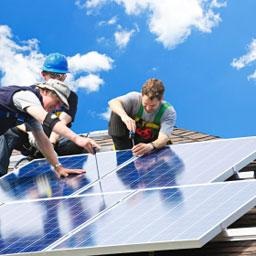Continuing to ignore its responsibilities to protect public health, safety, and well-being, the Lowndes County government proceeded with its plan to trash rural residents’ waste collection sites, and told part time workers there to get a job.
Jason Schaefer wrote for the VDT today, Trash centers dumped: Final week to make trips to county recycling centers,
The Lowndes County Board of Commissioners near the end of 2012 voted
to approve a contract with Advanced Disposal to serve as the sole waste company to conduct curbside trash pick-up in unincorporated Lowndes County. Some citizens remain critical of the change in service, which will cost $12.80 per month, and many are trying to get their last loads to the collection/recycling centers before they close….
Full-time employees at the recycling stations, which are already employees of Public Works, said County Clerk Paige Dukes, will be moved to different positions within the department. Part-time employees will need to find new jobs.
Why might citizens be critical? Continue reading





















